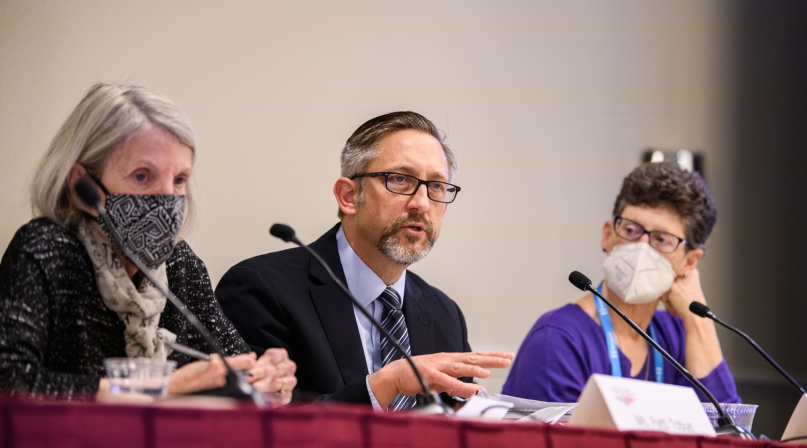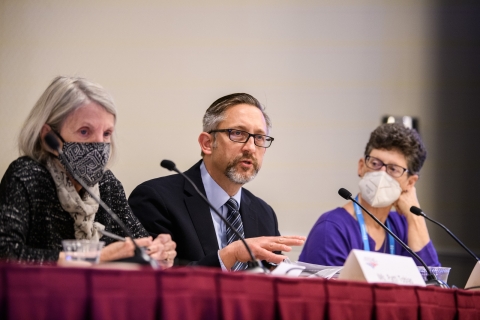Breaking the cycle: Justice reform for the mentally ill
Upcoming Events
Related News

Key Takeaways
The Conference of State Court Administrators and the Conference of Chief Justices have formed a national judicial task force to examine the role of the court system in the frequency of mentally ill residents who end up in the justice system and how counties can redirect them to better resources.
Task force member Christopher Goff, an associate justice of the Indiana Supreme Court, spoke with members of NACo’s Justice and Public Safety Committee Saturday, Feb.12 about some of their findings.
Commissioner Janet Thompson of Boone County, Mo. and Principal Court Management Consultant Patti Tobias of the National Center for State Courts also spoke to county officials, discussing the importance of collaboration with community partners, reforming the structure of the courts to enable flexible responses for the mentally ill and encouraging the education of the community on these vital topics.
They asked: “What would the very best courts in the United States do? What would they look like if they were designed and operated to most effectively and successfully serve and respond to the needs of those with serious mental health issues? What actions would you recommend that your state chief justice take toward the revision and reform of their state court systems to better serve individuals?”
Goff set up a drug court in the state of Indiana over 10 years ago designed as a problem-solving institution that networks with and responds to the suggestions of local leadership “who knew what the problem was, and who had some really good ideas about how to address it.”
In a similar experience, Tobias said “it was the courts and the counties together that could make a difference and whenever the courts and the counties together in Idaho wanted to solve a problem, we could in fact solve that problem.”
Goff said there are two key questions and recommendations he gives to judges about tackling the issue of mental health in the criminal justice system:
• Do you have institutions to call upon other than law enforcement when necessary?
• Is the judge familiar enough with the sequential intercept model to educate residents about it and are they approachable enough that residents can ask questions?
“That’s the critical part, engaging the community in a way that moves the needle,” he said.
Goff recommends county leaders approach “a reasonable judge” and start discussing the intercept zero concept, preventing those with serious mental illness from making it into the criminal justice system and talk about the sequential intercept model of diverting the mentally ill into proper care.
Through collaboration, the three participants agreed, communities will be better served.

Attachments
Related News
County Leaders Call for Action on Housing Affordability, Mental Health
Intergovernmental Partnerships Key to Achieving Solutions

Counties Recognize Mental Health Awareness Month, Plan Advocacy Across the U.S.
NACo again this year will mark Mental Health Awareness Month throughout the month of May with counties advocating for solutions that support the wellbeing of residents and address the nation’s mental health crisis.

Congress introduces Second Chance Act reauthorization
On April 16, the Second Chance Reauthorization Act of 2024 was introduced in the U.S. House of Representatives with robust bipartisan support. NACo supports this legislation, which would reauthorize funding for Second Chance Act programs for five years.